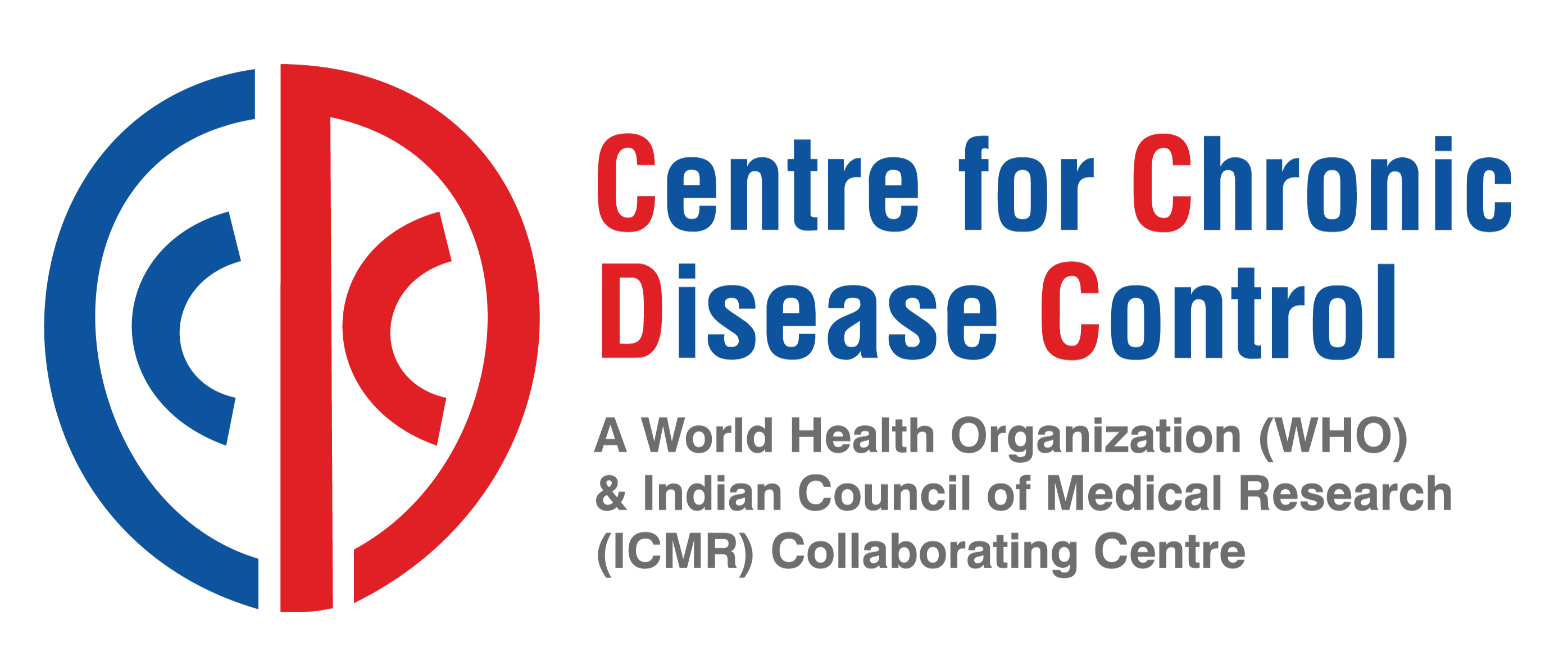The Centre for Chronic Disease Control (CCDC) is leading efforts to reduce the burden of chronic diseases in India and low- and middle-income countries (LMICs) while promoting innovative scientific solutions.
Founded in 2000, CCDC is a non-profit organization passionate about advancing research on chronic diseases. Our research is grounded in science and powered by technology, helping shape effective policies and programs for preventing and managing chronic diseases. CCDC is also committed to closing the gap between research and practical implementation through various capacity-building initiatives that enhance the skills of public healthcare professionals.
CCDC is striving to transform lives and healthcare systems in India and LMICs.


Chronic diseases such as heart disease, diabetes, cancer, mental health disorders, and others have reached epidemic proportions in India. These have collectively become the leading cause of deaths and disabilities across all the states of India. The number of people living with diabetes has risen exponentially and has reached 101 million. Similarly, over 220 million people live with hypertension. The prevalence of obesity has doubled in the last 25 years, with the current prevalence at 28.6%. The only silver lining is the decline in cigarette smoking, but beedi smoking and non-smoking forms of tobacco use have been increasing. At the present stage of India’s health transition, chronic diseases contribute to an estimated 64.9% of deaths and 57.9% of disability-adjusted life-years lost.
Cardiovascular diseases and diabetes are no longer the preserve of urban areas. Many states, particularly the southern states, and a few others are witnessing equal or higher burdens of these diseases in rural areas. Tobacco-related cancers account for a large proportion of all cancers. Tobacco consumption, in diverse smoked and smokeless forms, is common, especially among the poor and rural population segments. Hypertension, diabetes and dyslipidemia are inadequately detected and treated.
Demographic and socioeconomic factors are hastening the health transition, with a sharp escalation of chronic disease burdens expected over the next 20 years. Despite this broad knowledge, the biomedical research community faces formidable challenges in understanding the chronic disease dynamics, determinants, and dimensions.
Read moreThe chronic care paradigm encompasses preventive and therapeutic care, and both must incorporate risk-factor management. This requires a shared vision among multiple stakeholders that include the individual patient, community, healthcare providers and policy makers. It also mandates a holistic approach with the vision to prioritise prevention by promoting wellness.
For more than two decades, CCDC has conducted various research projects and studies to know the cause and mechanism of these chronic diseases by establishing extensive longitudinal studies. These have become internationally well-recognized exemplars of understanding the complex mechanisms of these diseases. It has established a large body of research to study and identify low-cost solutions to combat these diseases by novel and innovative methods, including task shifting and pairing digital technologies, including electronic health records, decision support systems, and telemedicine solutions. These have touched more than 200000 individuals directly and several million indirectly. In addition, CCDC has a strong track record of building research capacity and strengthening health systems. In the last two decades, more than 1000 researchers have been trained in India and internationally, and many of them have become global leaders in chronic disease research.
We’re optimistic that there will always be support for innovative science that has the potential to improve human health. CCDC will continue with the spirit of innovation in connecting science to policy and providing cost-effective solutions through research. To quote Margaret Mead, an American anthropologist, “Never doubt that a small group of thoughtful, committed citizens can change the world; indeed, it’s the only thing that ever has.” The team is young, dynamic, enthusiastic and full of energy and works with the belief that they can change the world. We seek your support in achieving the country’s ambitious goal of Ayushmann Bharat.

CCDC envisions to reduce chronic disease burden and promote innovative science that has the potential to improve human health through implementation and translational research.